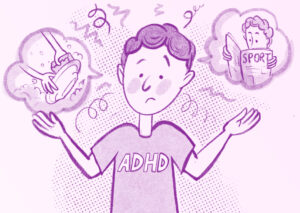In today’s fast-paced world, anxiety has become a prevalent mental health concern. While some causes of anxiety are rooted in genetics, past trauma, or life events, many people overlook how their daily habits contribute to their ongoing stress and anxiety. These routine behaviors may seem harmless or even productive on the surface but can subtly and consistently exacerbate anxiety levels. In this blog, we’ll explore the habits that might be feeding your anxiety and provide actionable tips for replacing them with healthier alternatives.
Table of Contents
Toggle1. Excessive Caffeine Consumption
Caffeine is a stimulant found in coffee, tea, energy drinks, and some sodas. While it may provide a temporary energy boost, excessive caffeine can increase heart rate, create restlessness, and mimic the physical symptoms of anxiety. For individuals already prone to anxiety, caffeine may worsen the situation significantly.
Tip: Try switching to herbal teas or limit your caffeine intake to one cup a day. Pay attention to how your body responds and adjust accordingly.
2. Skipping Meals or Poor Diet
Blood sugar levels have a direct impact on mood and energy. Skipping meals or eating high-sugar, low-nutrient foods can lead to fluctuations that cause irritability, fatigue, and anxiety.
Tip: Maintain a balanced diet rich in protein, whole grains, fruits, and vegetables. Eating regular, nutritious meals can stabilize your energy and mood throughout the day.
3. Lack of Physical Activity
Exercise has been scientifically proven to reduce anxiety by releasing endorphins, improving sleep, and increasing confidence. Sedentary lifestyles, on the other hand, can lead to both physical and mental stagnation.
Tip: Incorporate at least 30 minutes of physical activity into your day. Even a walk around the block or a quick yoga session can make a significant difference.
4. Constant Screen Time and Doomscrolling
Spending hours on screens—especially on social media or news apps—can overwhelm your brain with information, much of which may be negative or anxiety-inducing. This practice, known as doomscrolling, feeds the mind with fear and uncertainty.
Tip: Set screen time limits and designate tech-free zones in your home. Practice digital detoxing regularly.
5. Overcommitting and Saying Yes to Everything
Being too available or taking on too many responsibilities can lead to burnout and anxiety. Trying to please everyone often results in neglecting your own needs.
Tip: Learn to say no. Prioritize your commitments and give yourself permission to rest and recharge.
6. Poor Sleep Hygiene
Sleep is essential for emotional regulation and mental clarity. Irregular sleep patterns or inadequate sleep can contribute to heightened anxiety, irritability, and difficulty concentrating.
Tip: Stick to a consistent sleep schedule. Avoid screens before bedtime and create a calming nighttime routine.
7. Procrastination and Cluttered Living Spaces
Delaying tasks may provide short-term relief, but the long-term stress of looming deadlines can lead to heightened anxiety. Additionally, living in a disorganized or cluttered environment can contribute to mental chaos.
Tip: Use to-do lists, break tasks into smaller steps, and tidy your space regularly. A clean, organized space often leads to a clearer mind.
8. Negative Self-Talk and Perfectionism
How you talk to yourself matters. Constant self-criticism or setting unrealistically high standards can fuel feelings of inadequacy and increase anxiety.
Tip: Practice self-compassion and realistic goal-setting. Remind yourself that mistakes are a part of learning.
9. Avoidance of Difficult Emotions
Suppressing emotions or avoiding uncomfortable situations can create long-term anxiety. Avoidance may provide temporary relief but doesn’t address the root issue.
Tip: Journaling, talking to a therapist, or practicing mindfulness can help you process emotions in a healthy way.
10. Social Isolation or Toxic Relationships
Human connection is essential for mental health. Isolating yourself or maintaining relationships that are emotionally draining can significantly impact your anxiety levels.
Tip: Cultivate positive relationships and seek support when needed. Social interaction—even brief—can boost mood and reduce anxiety.
Conclusion
Anxiety is a complex condition influenced by various factors. While therapy and medication are helpful tools, addressing everyday habits can significantly improve your mental well-being. By identifying the behaviors that may be worsening your anxiety and making intentional changes, you can take powerful steps toward a calmer, more balanced life.
If you’re struggling with anxiety and unsure where to start, consider reaching out to a mental health professional like Arpan Sarma. Therapy can provide personalized strategies and support to help you manage anxiety effectively.
Need help managing your anxiety?
Book a session with Arpan Sarma today and begin your journey to better mental health.





